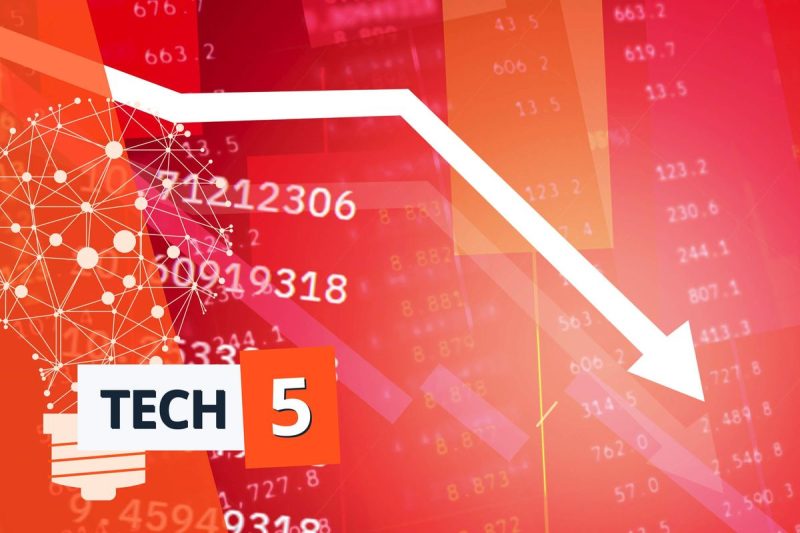The recent market turbulence has reignited fears of an economic recession, prompting panic selling in the tech sector. As investors look for safe havens amidst the uncertainty, tech stocks have borne the brunt of the selloff. Several key factors have contributed to the apprehension among market participants, leading to a sharp decline in tech stocks. Here are five recession fears that have kicked panic selling into overdrive, resulting in a tech selloff:
1. Rising Interest Rates:
One of the major concerns weighing on the market is the prospect of rising interest rates. The Federal Reserve’s decision to hike interest rates has spooked investors, as higher borrowing costs could dampen consumer spending and hinder economic growth. This has put pressure on tech companies, as many rely on easy access to credit to fund their operations and expansion plans.
2. Trade War Uncertainty:
The ongoing trade tensions between the U.S. and China have added to the sense of unease in the market. The imposition of tariffs and retaliatory measures has disrupted supply chains and increased costs for tech companies that rely on overseas manufacturing. The uncertainty surrounding the outcome of the trade negotiations has fuelled fears of a global economic slowdown, prompting investors to reduce their exposure to tech stocks.
3. Economic Slowdown in China:
China, a key market for many tech companies, has been experiencing an economic slowdown in recent months. Weak manufacturing data, declining consumer confidence, and the impact of the trade war have raised concerns about the health of the Chinese economy. As demand wanes in China, tech companies that have significant exposure to the region are feeling the heat, prompting investors to sell off their holdings.
4. Tech Regulation:
The tech sector has come under increased regulatory scrutiny in recent years, with concerns about data privacy, antitrust issues, and the misuse of technology. Regulatory intervention can have a significant impact on tech companies’ bottom lines, as fines, legal fees, and compliance costs can erode profitability. The threat of stricter regulations has spooked investors, who fear that tech stocks may face headwinds in the coming months.
5. Valuation Concerns:
The tech sector has been one of the best-performing segments of the market in recent years, driven by rapid growth and innovation. However, the lofty valuations of many tech stocks have raised concerns about a potential bubble. As investors reassess the risk-reward dynamics of tech investments, some are opting to reduce exposure to the sector, leading to a selloff in high-growth tech names.
In conclusion, the convergence of these recession fears has catalyzed panic selling in the tech sector, as investors seek to protect their portfolios from potential downside risks. While the selloff may present buying opportunities for long-term investors with a high risk tolerance, the prevailing uncertainty in the market underscores the importance of a diversified investment strategy and risk management. As the economic landscape continues to evolve, monitoring these recession fears and their impact on tech stocks will be crucial for navigating the volatile market environment.
